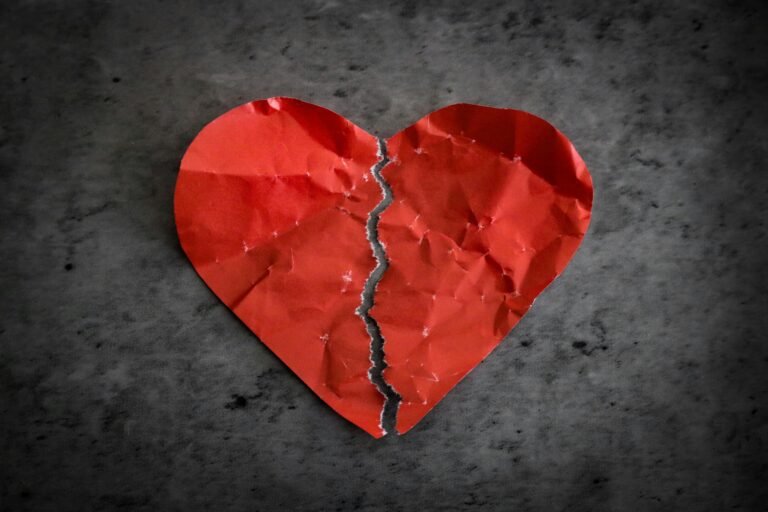TikTok Breakups: Healing or Oversharing in the Digital Age?
TikTok Breakups: Healing or Oversharing in the Digital Age?
Introduction
TikTok breakups are becoming a cultural phenomenon—transforming personal pain into public content. From tearful confessionals to glow-up videos, the app has created a space where heartbreak is shared, consumed, and even celebrated. But is this wave of breakup content actually helping people heal, or is it just oversharing for clout?
In this post, we’ll explore how TikTok is reshaping the breakup narrative and whether it’s helping or hurting us in the process.
How TikTok Changed the Breakup Narrative
Breakups on TikTok have shifted from something private to something performative. As short-form content continues to dominate, emotional storytelling has emerged as one of the most viral types of videos.
Popular trends include:
- Sad montages with emotional music
- Storytime videos detailing relationship drama
- “Breakup glow-up” reveals with new looks and fresh energy
- Duets and reactions to an ex’s content or response videos
These TikTok breakups create a digital diary of heartbreak, often followed by thousands or even millions. In many cases, strangers become invested in the story, offering support or, at times, criticism and gossip.
It’s not uncommon for users to build an entire following based on a breakup saga. While this can be empowering, it also risks turning deeply personal emotions into a content cycle that’s hard to step away from.
The Case for Oversharing
There’s a growing concern that TikTok breakups encourage oversharing, especially when raw emotions are broadcast in real time.
Why people post:
- Seeking instant validation and support
- Gaining control over the breakup narrative
- Emotional content often performs well with the algorithm
The TikTok algorithm favors content that feels real and vulnerable. The more raw and relatable a breakup video is, the more likely it is to reach a wider audience. But that virality can come at a cost.
Potential downsides:
- Loss of privacy
- Judgment and backlash from strangers
- Blurred line between venting and performative pain
- Long-term regret or digital footprint consequences
Turning breakups into viral content can make the healing process messier—especially if videos outlive the emotions that inspired them. According to Psychology Today, constantly broadcasting emotional experiences can blur the line between self-expression and emotional vulnerability, sometimes leading to increased anxiety and self-doubt. And once something is online, it can be difficult (if not impossible) to take back.
The Case for Healing
Despite its challenges, sharing your breakup on TikTok can have emotional benefits.
Why it helps some people heal:
- Builds community with others who relate
- Reduces the stigma around emotional vulnerability
- Creates a digital diary to track growth
- Offers encouragement and real-time support
For some creators, TikTok serves as a therapeutic space. The ability to tell your story, receive empathy, and document your healing journey can help people feel less alone. TikTok’s comment sections often turn into mini-support groups filled with strangers cheering someone on.
Some even use their platform to inspire others going through the same pain—offering tips, affirmations, and updates that show the reality of the healing process. In this way, TikTok breakups can become empowering.
When Sharing Goes Too Far
Not all breakup content is healthy—or harmless. TikTok oversharing becomes an issue when:
- Personal details or private conversations are exposed
- Content is created out of spite or revenge
- Exes are named, tagged, or doxxed
- Real-life consequences (jobs, reputations) are impacted
Even well-intentioned videos can spiral out of control once they go viral. As noted by The Atlantic, oversharing on social platforms may feel cathartic in the moment but can lead to long-term consequences as digital footprints linger indefinitely. Breakups that are shared too openly can attract drama, divide mutual friends, or invite negativity from viewers who don’t know the full story.
There’s also a risk of retraumatizing yourself by reliving the heartbreak every time someone comments, duets, or shares your post. Oversharing can keep you stuck in the pain instead of moving forward.
How to Share Mindfully on TikTok
If you’re navigating a breakup and tempted to post, ask yourself:
- Why am I sharing this? (healing, attention, revenge?)
- Am I protecting my peace and others’ privacy?
- Can I wait before I post? (Save it to drafts first.)
- Am I emotionally ready for both support and criticism?
Additional tips:
- Consider journaling or talking to a friend first before going public.
- Avoid naming or directly referencing your ex.
- Disable comments if needed for your mental well-being.
- Celebrate your healing, not just the heartbreak.
Mindful posting = better boundaries + long-term peace of mind.
The Bigger Picture: Breakups, Content, and Culture
We live in a content-driven world where even our most personal moments can be turned into viral videos. TikTok breakups are a reflection of a broader trend: processing life in public.
For Gen Z and Millennials, TikTok is more than an app—it’s a diary, a soapbox, and a stage all rolled into one. Sharing heartbreak online is part of a cultural shift toward radical transparency.
But transparency doesn’t mean we owe the internet our every emotion. Healing can happen both online and offline. Verywell Mind offers useful tips for coping post-breakup—including when to turn to community support versus private reflection. The goal is to stay true to yourself—not just to the algorithm.
Final Thoughts
TikTok breakups are part of a new wave of digital storytelling. For some, they offer comfort, community, and catharsis. For others, they blur boundaries and reopen wounds.
Sharing your heartbreak online isn’t inherently bad—but it should be intentional. For more honest breakup advice and healing content, ➡️ Read Next.





